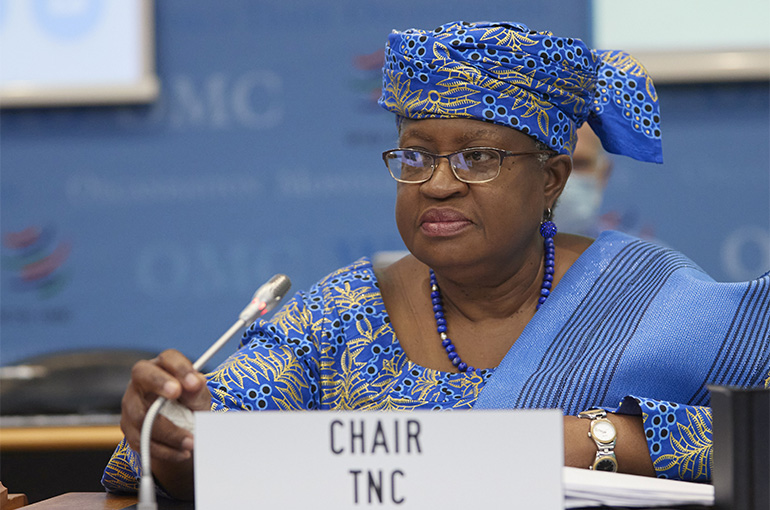 African Group Proposes WTO Director-General for Second Term
African Group Proposes WTO Director-General for Second Term(Yicai) July 18 -- The African Group of States has proposed to the World Trade Organization that it will be in the global trade watchdog's best interest if the process of reappointing Director-General Ngozi Okonjo-Iweala starts early.
The African Group requested that the matter of Okonjo-Iweala running for a second term as the head of the WTO be included on the agenda of the upcoming WTO General Council meeting scheduled from July 22 to 23, according to the proposal recently submitted by the group of 54 African countries.
Okonjo-Iweala, a Nigerian economist, became the first woman and African to lead the WTO as director-general when she took the post in March 2021 with a four-year tenure. According to the organization's internal rules, the appointment process for the new director-general should begin at the end of this year, with a decision to be made next January.
Under Okonjo-Iweala's leadership, the WTO achieved several long-term agreements and advanced reforms during the 12th and 13th Ministerial Conferences, the African Group noted. Promoting her early reappointment aims to ensure the continuity of these outcomes and avoid overlapping the director-general's appointment process with the preparations for the MC14.
According to analysts, advancing Okonjo-Iweala's reappointment process is intended to avoid potential disruptions caused by the US presidential election in November, even though the African Group did not mention this. In 2020, Robert Lighthizer, the US trade chief in the Donald Trump administration, obstructed the appointment of Okonjo-Iweala.
Okonjo-Iweala has not commented on her plans to run for a second term. In February, she said she is focused on how the WTO could make a difference in important matters, warning that the increasing trade protectionism actions globally are undermining the rules of the WTO and leading to fragmentation in the trade sector.
If the WTO members initiate Okonjo-Iweala reappointment process soon, it could be completed before the US presidential election, Yicai learned. However, this would require creative use of the rules and must gain the consent of all WTO members, which could spark controversy.
Editor: Martin Kadiev